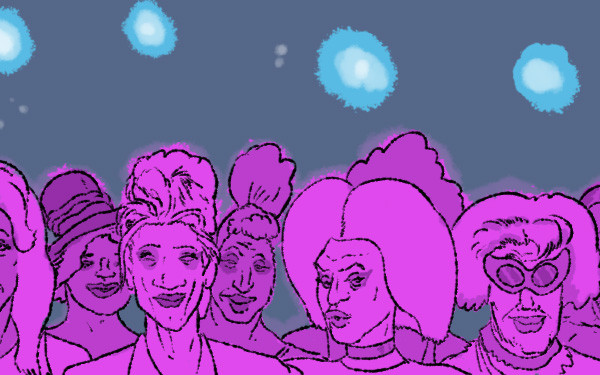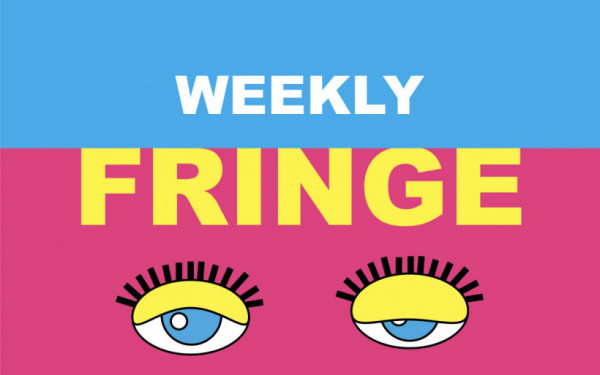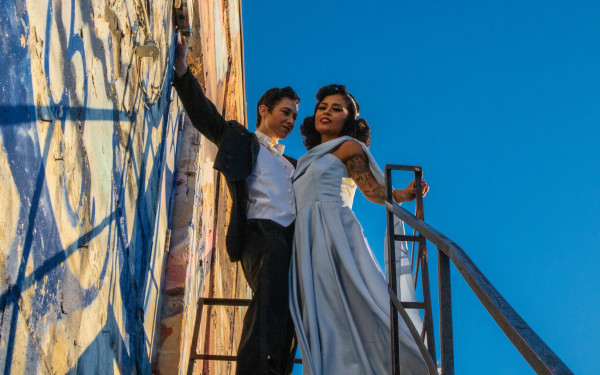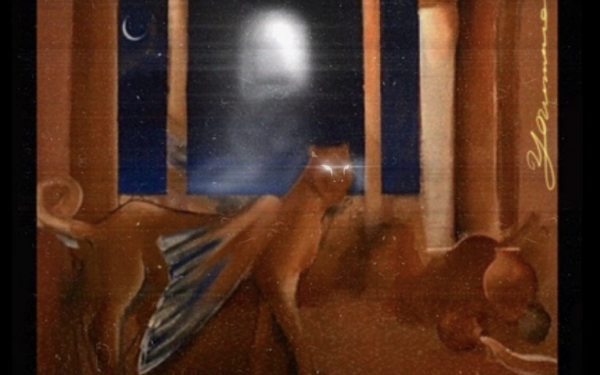The Intersection of Art and Activism: Drag Artistry
Discussing the Struggles of Being a Drag Queen of Colour With Manny and The Vixen
RuPaul Charles calls out, “Tens, tens, tens across the board” jubilantly starting off the first episode of the tenth season of the reality show RuPaul’s Drag Race.
Chicago-based queen, The Vixen announced her entrance declaring “I’m just here to fight.” She would later become known for the opening phrase.
Offscreen, the aroma of jasmine tea added to the warmth radiating from Montreal queen Manny as she sat in a cafe. Her animated personality quieted as she explained that she hates being introduced as a legend.
She is a makeup artist, performer, and mentor for young local queens. She has been around for a long time, and is a respected figure in Montreal’s queer community.
During the past few years the drag community has begun to garner mainstream media attention.
It’s difficult to pinpoint exactly when drag was launched into the mainstream. Perhaps it was Drag Race winning an Emmy award in 2018 or Lady Gaga’s 2017 appearance on the show’s ninth season.
Mainstream celebrities such as Miley Cyrus tweeted regularly about it, potentially aiding its rise to mainstream consciousness. Additionally, two seasons of Drag Race became available to stream on Netflix.
Now it’s not just the queer community that has access to subversive forms of drag, but the whole world.
As a result of the larger platform, some queens of colour have begun to address the unique issues they face in LGBTQ+ communities.
In an interview with The Link, The Vixen explained that while she has been an activist since childhood and all throughout college, she felt timid about speaking out against race issues in the queer community. But then, as they became more and more pressing she felt unable to keep quiet about it.
The Vixen opened the discussion for the basis of discrimination that is experienced and how it eliminates the idea of a safe space within the queer community.
In the academic article “Theorizing Micro-aggressions as Racism 3.0: Shifting the Discourse,” sociology and legal studies adjunct professor at University of Waterloo Augie Fleras described the concept of racism 3.0 as the presence of microaggressions, categorized as words or actions perceived as offensive by a minority, that exist due to the presence of a subconscious racial bias.
Local queen Manny is optimistic about inclusivity. She is of Filipino descent. She also mentors young up and coming queens; in that she helps with getting young people started in shows and feeling comfortable functioning within Montreal’s queer community.
Manny addressed the idea that drag is currently part of mainstream culture. “[This] is a way of reaching and opening up a lot of eyes, there is still a long way to go but I am glad,” she said, expressing an optimistic view of what this means in terms of acceptance.
In an interview with The Link, The Vixen explained the impact of microaggressions in her everyday life. “The perception is that they feel comfortable inconveniencing the person of colour, they feel comfortable telling them to step aside.”
She went on to say that in 2018, modernity makes this type of discrimination hard to measure because it is “normalized.” She explained that this is something that has been internalized and so ingrained that the person has no idea they are being racist or why it is wrong.
In “Theorizing Micro-aggressions as Racism 3.0: Shifting the Discourse” Fleras offers examples similar to those of The Vixen that he refers to as “micro-aggressions” or “the new face of racism.”
He analyzes how an individual will choose to inconvenience people of colour because they assume they are used to it or it’s not as bad as inconveniencing a white person. These actions could be categorized as microaggressions, that go unnoticed since they are so ingrained in day to day actions.
This dynamic is what The Vixen was referring to, as it is difficult to measure or define the level of racism not just in the supposed modernity of 2018, but within an oppressed minority group such as the queer community.
What The Vixen is addressing with her activism is this “new face of racism” that Fleras describes as the presence of unconscious animosity as perceived by the marginalized individuals regardless of intention.
Cited in Fleras’ article is professor of critical race and gender studies at Antioch University, Philomena Essed, from her book Understanding Everyday Racism: An Interdisciplinary Theory.
“I would say if it’s making you uncomfortable you’re probably not the only person in the room who is uncomfortable, even if you don’t know the person, you might be speaking up for someone right next to you.” —_The Vixen _
Everyday racism can be defined as practices with racist implications that become in themselves familiar and repetitive, that function to reinforce underlying ethnic relations through routine everyday situations.
Fleras used this definition to argue that everyday racism consists of subtle but significant forms of normalized bias.
In his article, Fleras describes how normalized racism may function to reinforce a hierarchy of privilege, and how it is only direct traditional racism that is rarely expressed openly because people know better, unless they want to commit social suicide.
In an interview with The Link, Fleras commented that he thinks The Vixen’s experiences reflect “‘Micro-aggressions as racism 3.0’—that is, how Vixen defines the situation and acts/responds to it.”
When The Vixen worked in drag clubs, she experienced microaggressions that made it apparent that she was being treated differently than the white queens. She thinks that microaggressions are still heavily present in the world.
Manny has had a similar experience in Montreal. She could not think of many working queens of colour in Montreal, and as she counted her fingers Manny said, “I think it is very sad that there is very little representation.”
She explained that some events tend to feel whitewashed, and when the majority of the performers are white, it leads her to think she was chosen as the token person of colour.
“I don’t feel like I’m included,” she said. Oftentimes if Manny wants to perform at an event she must ask the promoters, as opposed to being invited. “That needs to change,” she said.
Manny said more club promoters need to reach out to queens of colour: “I think there needs to be more consciousness.” She explained that in Quebec there is sensitivity to the divide between anglophones and francophones, but that that binary often leaves out “Asians, Blacks, and Latinos.”
In response to the issue of the unique challenges and microaggressions queens of colour face in supposedly safe spaces, The Vixen began her show in 2016 titled Black Girl Magic, a drag concert of storytelling and performance, that featured only queens of colour, as a celebration of queer Black joy.
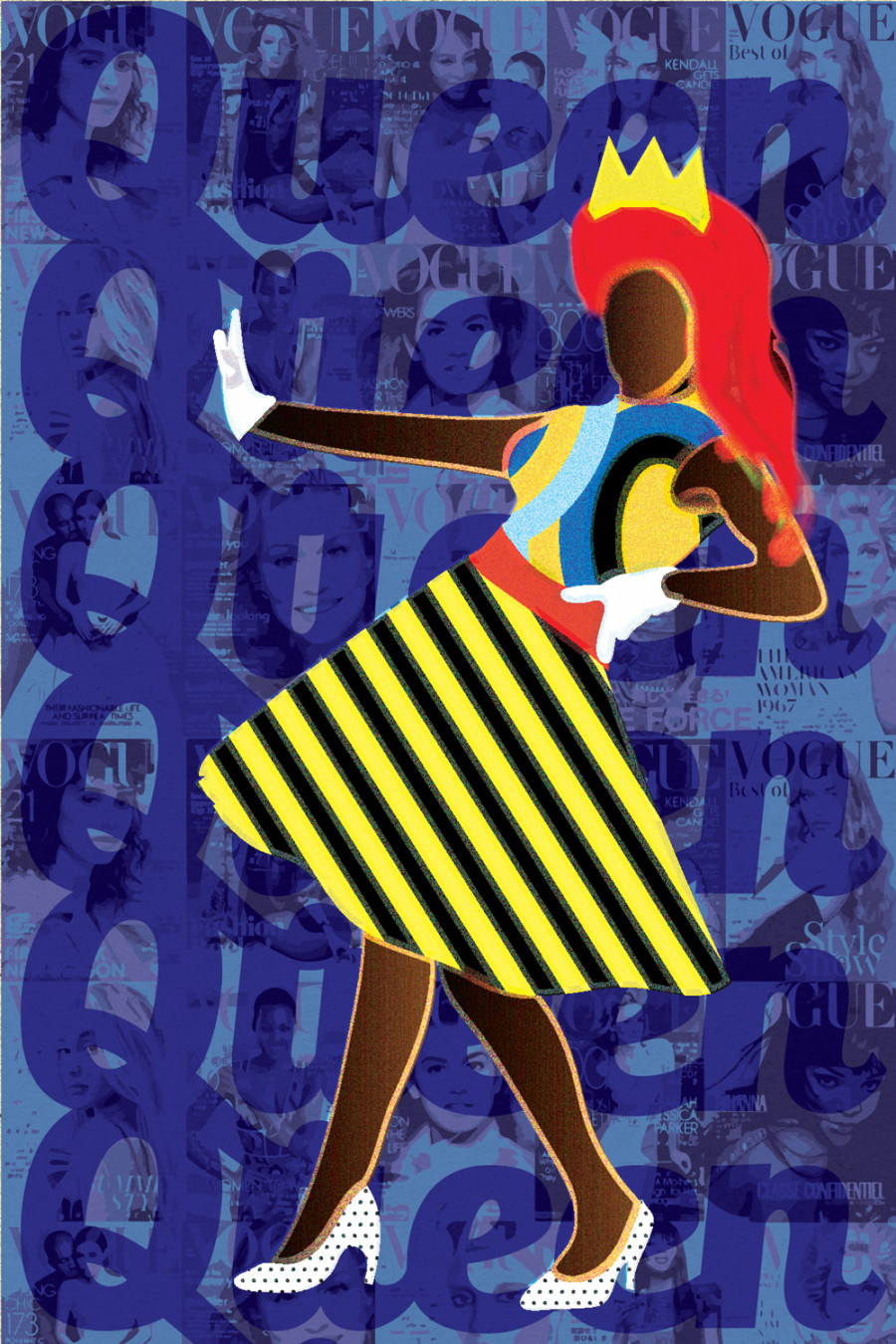
The Vixen described it as a way to create a safe space, where people are able to be their authentic selves and not have to worry about entertaining an audience. She explained that her show is a place for drag performers to vent and perform numbers, political or not, that they wouldn’t feel comfortable performing elsewhere.
The Vixen thinks of the art of drag as a form of activism and a way to celebrate the strength of Black women. She described it as “a homage to the women I grew up with and look up to” because they are powerful, resilient and strong.
She noted that in 2018 everyone wants to appear to be a “cultured” individual, and therefore a decent person. She expressed that what lies in contemporary racism differs from the classic idea of it. Oftentimes it is undertones that alert a minority to the presence of a bias.
“I think people want to believe that they are for change, once it inconveniences you personally that’s when you really find out if you’re an an ally. It’s easy to say #BlackLivesMatter or it’s easy to say whatever hashtag is trending. When you have to give up or acknowledge your privilege it becomes uncomfortable for some people,” said The Vixen.
The Vixen went on to describe racism in her own words, as an idea that spread, but “love can spread just as easily.” She said she is flattered that now people turn to her to fight back whether it is in person, or on social media.
She explained this role she has chosen is a hard one to bear, because the majority of individuals will stay silent. The Vixen has inspired a movement within the drag community by using the platform offered by the television show Rupaul’s Drag Race to address racial issues in the queer community, it gained traction on social media because so many individuals felt the same way.
“I would say if it’s making you uncomfortable you’re probably not the only person in the room who is uncomfortable, even if you don’t know the person, you might be speaking up for someone right next to you.”



